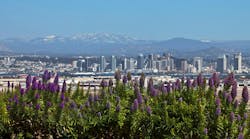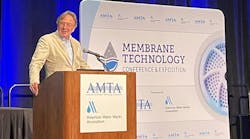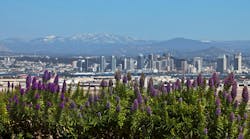AMSTERDAM, NETHERLANDS, Aug. 27, 2014 -- Recent efforts undertaken in UTZ Certified's Energy from Coffee Wastewater project, a global endeavor addressing environmental and health problems caused by the wastewater produced in the coffee industry, has proven that it is possible to generate energy, tackle climate change and protect water resources by treating discharges from coffee mills.
UTZ Certified, a label and program for sustainable farming of agricultural products, has incentivized tailor-made coffee wastewater treatment systems and solid-waste treatment mechanisms to be installed in eight coffee farms in Nicaragua, 10 in Honduras and one in Guatemala. The positive environmental and economic impact of the project on over 5,000 people in the region has inspired the organization to replicate the initiative in other countries.
Latin America produces around 70 percent of the world's coffee and is where 31 percent of the globe's freshwater resources are located. Yet coffee production generates a great amount of wastewater that is regularly released untreated into rivers, affecting aquatic fauna and flora as well as downstream communities. Additionally, coffee wastewater comes along with tons of organic waste and high toxicity, which affects the soil and generates considerable amounts of greenhouse-gas emissions, particularly methane, heavily contributing to climate change.
The Energy from Coffee Wastewater project has been implemented in a range of differently-sized farms. The achieved results of the project range from preventing local deforestation of native trees to better indoor environments for families who replaced firewood with domestic gas stoves for cooking. Additional outcomes included:
- Treatment of essentially all water used in coffee processing
- Over 50 percent less water used during coffee processing
- Generation of a significant amount of biogas used to power households and coffee mills
- Prevention of the release of greenhouse-gas emissions into the atmosphere
"Coffee production is only environmentally sustainable when water is used efficiently and polluted water from the wet-mill process is treated. Local ecosystems do not have the capacity to clean the large amounts of contaminated fluids," said Han De Groot, executive director at UTZ Certified. "Rural communities and coffee production depend intrinsically on a ready supply of fresh water. So if we want to talk about coffee produced in a sustainable manner, then wastewater must be treated when released into the environment."
UTZ Certified is currently introducing the technology in Peru and Brazil. UTZ hopes to receive further funds and the industry's support to replicate the initiative in Africa and Asia.
See also:
"Cleaning wastewater with coffee husks"
"Controlling sewer odors with carbonized coffee grounds"
About UTZ Certified
UTZ Certified is a program and label for sustainable farming of coffee, cocoa and tea. Its mission is to create a world where sustainable farming is the norm. The UTZ Certified Program enables farmers to learn better farming methods, to improve working conditions and to take better care of people and the environment. The UTZ Certified Program includes requirements for managing water in the coffee industry. Farmers must put in place a water quality analysis and monitoring program, so corrective actions can be applied when needed. For more information, visit www.utzcertified.org.
###


